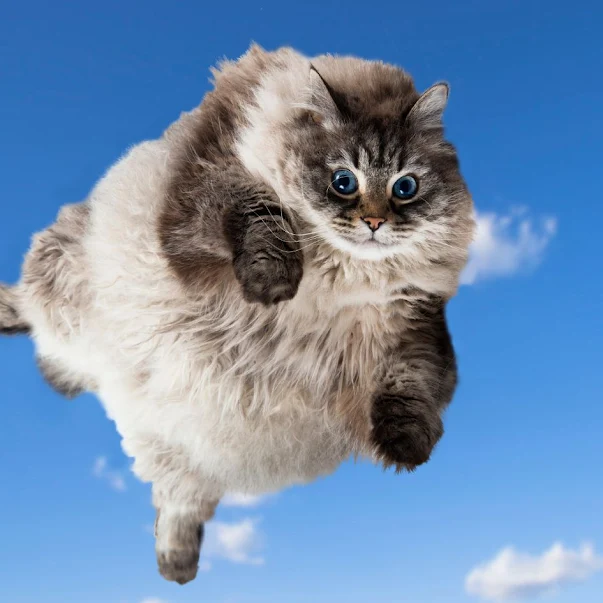A study conducted at the University of Illinois College of Agriculture, Consumer and Environmental Sciences investigated what happens inside the gut i.e. the stomach and colon of a domestic cat when they eat too much and gain weight.
 |
| Fat cat. Image: MikeB (Canva) under license. |
High level of feline obesity
The study researchers kicked off with this shocking bit of information: about 60% of cats in the US are overweight. Comment: I thought it was about 40% but the percentage keeps on going up. This extra weight can lead to serious health problems such as type II diabetes and joint problems and chronic inflammation.
11 cats participated in the study and here is another little bit of information which I also find shocking. These cats were fed a standard dry food diet. Dry cat food is known to be somewhat addictive because of the fatty spray they coat the pellets with. And this proved to be the case because they were allowed free access to this dry cat food. And during this time the researchers collected blood and faecal samples at regular intervals and they monitored the cats' activity levels.
Once the cats were allowed to free-feed they ate too much. I find that very strange because my cat doesn't do this and he is allowed a free feed. Perhaps the difference is that these cats were in some sort of research facility where they were allowed to move around but they might have become bored and boredom can lead to overfeeding. My cat is an indoor/outdoor cat and he spends quite a lot of his time outside being active.
To return to these cats. They put on weight fairly quickly. At the beginning of the study, they had average body weights. Using a cat version of human BMI, their BCS scores were 5.41 on a 9-point scale. After 18 weeks of overfeeding their BCS was 8.27. This meant that they were 30% overweight.
Gut microbiota composition
There were significant changes in gut microbiota composition. And the changes were surprising because the gut microbiota composition improved. There was an increase in a bacteria which has antimicrobial activity, which inhibits pathogens and stimulates the immune system. And likewise, there was a decrease in another bacteria which is linked to pro-inflammatory diseases. The former is called Bifidobacterium and the latter is called Collinsella.
The results were the opposite to what has been measured in overweight humans. In other words, when humans gain weight their gut microbiota becomes worse and less effective.
Transit times
This measures the amount of time the food, digested food and faeces remain in the body and travels through the body. The transit time was reduced and so was "digestive efficiency". When a cat eats less food, their stomach extracts more nutrients from the food and vice versa. This is because the food passes through the digestive system faster preventing an efficient extraction of nutrients.
Also course the cats pooped more which is to be expected! And finally, faecal pH decreased which meant that the poop became more acidic when they became fatter. pH measures the acidic and alkaline levels of a substance.
After this study they were put on a controlled restricted diet and they lost weight. The study impliedly found that if you feed dry cat food to a domestic cat you should restrict the diet. In other words, you should control the amount of food they have.
------
P.S. please forgive the occasional typo. These articles are written at breakneck speed using Dragon Dictate. I have to prepare them in around 20 mins.

No comments:
Post a Comment
Your comments are always welcome.